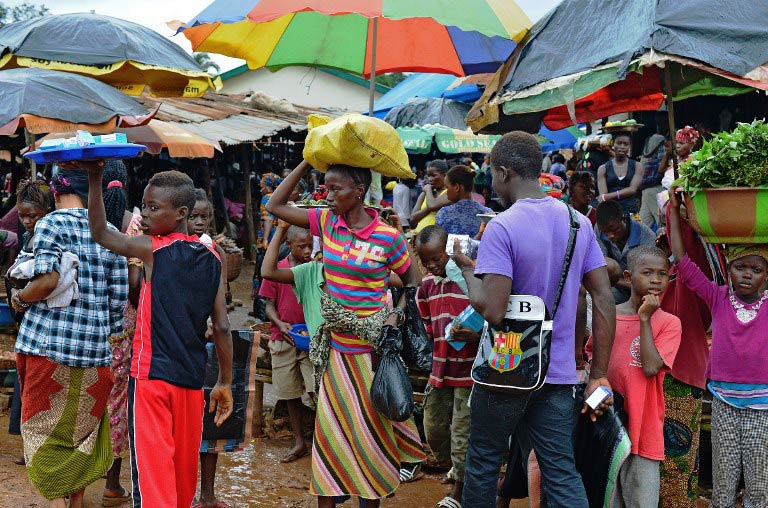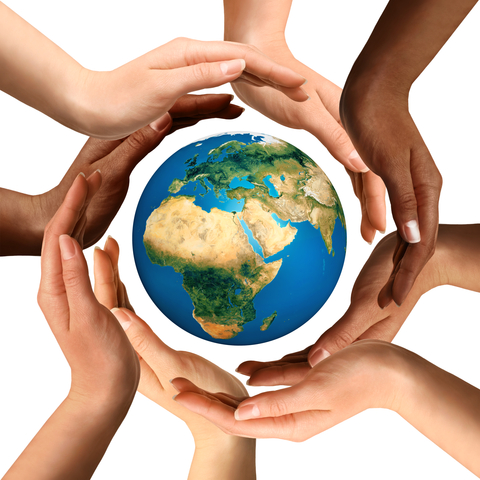It’s 6:30 am on a Saturday morning and as has become my daily routine, I grab my phone and search the internet looking for updates on the 2019 novel Corona virus outbreak (nCoV-2019). Today it is dominated by the news of the United States imposing a limited ban on travel from China and on foreign nationals who have visited the country within the past 14 days. A few other countries including the Bahamas, Mongolia and Singapore have adopted this approach, also imposing limited and full travel bans from China.
A New Decade, A New Pandemic?

A silent moment of reflection brings back flashbacks from another time and another outbreak. In 2013-2014 during the peak of the Ebola outbreak in West Africa, as West African living in London, I experienced first-hand the impact of a travel ban. Such bans quickly breed stigma and xenophobia towards large groups of people and also negatively impact the outbreak response. Since the first cases of an unusual respiratory illness were reported in November 2019, what’s now being dubbed novel Corona-virus 2019 (nCoV-2019) has recorded almost 12,000 cases and caused over 200 deaths. 98% of the cases so far have been in mainland China with exported cases reported in 26 countries around the world – a number that most certainly will continue to grow.

The scientific and medical communities have presented an incredibly united front with a pace of discovery and information sharing exceeding anything we have seen before. We now have a better understanding of how the virus is transmitted, the symptoms exhibited by those who become ill from it and drug trials are underway studying possible treatments. The nCoV-2019 outbreak highlights how interconnected our world truly is but also exposes the stark inequalities that make it wholly unprepared to fully combat a true pandemic.

Wealthy and powerful nations have rushed to extract their nationals from Wuhan province in China, and flaunted elaborate and “full proof” plans for quarantine at home. Resource limited countries meanwhile, nervously await that first returning traveler with a nCoV-2019 diagnosis and plan as best as they can on how they will respond when that time ultimately arrives.
Travel bans – Deceptive, ineffective and morally wrong

The World Health Organization earlier this week declared the nCoV-2019 outbreak a global health emergency. A move that is designed to help a more coordinated international response to the outbreak. In that same announcement it also urged nations to not restrict travel or trade with China – a plea that may have fallen on deaf ears. At face value travel bans may seem like a reasonable approach, as governments and politicians face intense pressure to “do something”. In reality these bans are ineffective, cause significant downstream effects and impede on an effective response. There is an immediate and significant economic impact on the most affected regions, high cost associated with crafting and implementing travel restrictions and a direct effects on transparency in reporting on the outbreak as countries fear they may be the next victim of future bans.
An unleveled playing FIELD

One of the key principles of the International Health Regulations (IHR), a legally binding instrument of international law with 196 signatory countries, is the emphasis on avoiding “unnecessary interference with international traffic and trade”. In practice this means that individual states may not impose travel bans in the absence of a WHO recommendation or scientific evidence. The United States as the world’s leading super power, through the current ban has the ability to severely erode these regulations and global collaboration in the face of the ongoing nCoV-2019.
A set of rules that seemingly only applies to weaker and resource challenged countries disincentivizes future sharing of surveillance data to predict and curb future outbreaks. Lower income countries are likely to question the benefits of sharing surveillance data and being transparent on how they report on outbreaks when more powerful signatories to the IHR openly violate their own commitments to the same regulatory documents.

The toll of Ebola on West Africa
The West Africa Ebola outbreak lasted 2.5 years and affected 30000 people. Almost 7-years later countries most directly impacted (99% of cases were in Guinea, Sierra Leone and Liberia) have not fully recovered from the effects of the airline freezes and travel bans imposed during that time. The resulting “loss” of direct travel and tourism GDP is equivalent to 0.9% and 1.6% of the whole economy in Guinea and Sierra Leone respectively. These are losses that the most fragile economies and healthcare systems in the world absolutely cannot afford and leaves then highly vulnerable to outbreaks like nCoV-2019. Canada a country with a strong economy, suffered indirect and direct losses estimated at 2-billion dollars in 2002-2003 during the outbreak of the Severe Acute Respiratory Syndrome (SARS) as a result of a WHO-imposed travel ban. These lessons from the recent past should help shape a global response that supersedes the short sighted interests of individual nations.
Blame it on bat soup? – Challenging Stigma and Xenophobia in the face of an outbreak

As we grapple with this outbreak many Chinese people around the globe are having to deal with xenophobic and racist chatter about their eating habits. This is reminiscent of the several media reports on “rampant” bush meat consumption in Africa during the West African Ebola outbreak and how this may have triggered the start of that outbreak. As someone born and raised in the African country of Cameroon, a warm plate of bush meat stew accompanied with boiled ripe plantains evokes warm memories of home and a lifestyle that I grew up with. Not the guilt and shame that a false narrative would have me feel about how Africans and their love of bush meat may be fueling outbreaks of zoonotic diseases.

When faced with the unknown the instinctive human reaction is usually, seeking to assign blame and point to the other. While this may offer a sense of superiority to the one doing the finger pointing it is highly damaging to the targeted group and sows the seeds of stigma and xenophobia which often outlast any outbreak. The WHO in avoiding linking a city, region or country to the naming of the new virus has been prescient on the negative impact this would have had on the residents of Wuhan. nCoV-2019 may not roll off the tongue as easily as some would like but at least spares the residents of Wuhan a haunting label they may never be able to shake-off after the outbreak is long forgotten. At a time when the global community must unite to face a pandemic being sensitive and compassionate in how we react to this outbreak is crucial.
More Connected, More United

We are only seeing the tip of the iceberg, this outbreak could last several more months, with projections that thousands more will become infected . While the scientific community comes together to find effective treatments and a vaccine, governments must recognize that we are all in this together. Faced with an impending pandemic travel bans, stigma, xenophobia and racism have no place in the appropriate moral response. We are all in this together and how we react in the coming days and months must reflect this.
Written by : Boghuma. K. Titanji
For reliably sourced information and updates on the outbreak I recommend visiting the Infectious Disease Society of America (IDSA)website at – https://www.idsociety.org/public-health/novel-Coronavirus/






